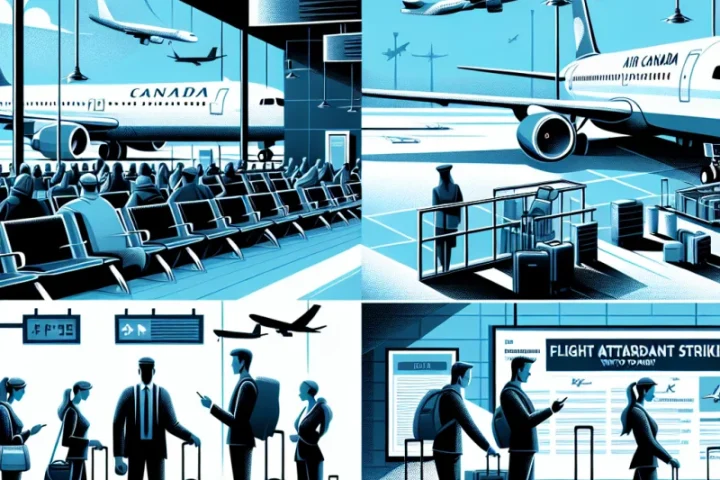The West African political landscape has been fundamentally transformed by an unprecedented wave of military coups since 2020, creating a new geopolitical reality where foreign influence patterns are reshaping regional dynamics. As military regimes consolidate power across the Sahel, traditional Western partnerships have given way to alternative security arrangements with Russia, China, and emerging middle powers, fundamentally altering the balance of power in this strategically vital region.
The Coup Belt: A Regional Transformation
West Africa has experienced the most dramatic surge in military coups globally, with at least 10 coup attempts recorded between August 2020 and August 2024. This wave of political upheaval began with Mali’s coup in August 2020, followed by Guinea (September 2021), Burkina Faso (January and September 2022), Niger (July 2023), and Gabon (August 2023), creating what analysts term the “coup belt” across the Sahel region.
The post-coup geopolitics emerging from these transitions reflects fundamental shifts in how military regimes engage with international partners. Political violence events in the Sahel have increased dramatically from a few hundred annually prior to 2012 to nearly 12,000 in the most recent 12-month period to March 2024, making it the global epicenter of terrorism and political instability.
Sub-Saharan Africa now accounts for 47% of global terrorism deaths in 2023, surpassing South Asia, the Middle East, and North Africa combined. This security deterioration has provided justification for military takeovers while creating opportunities for new foreign influence arrangements that challenge traditional Western dominance.
The formation of the Alliance of Sahel States by Mali, Burkina Faso, and Niger represents institutionalization of this post-coup geopolitics, as these nations withdrew from ECOWAS in January 2024 to reduce regional pressure for democratic transitions and coordinate alternative security partnerships.
Russian Penetration Through Military Proxies
Russia’s influence in West Africa has expanded dramatically through Wagner Group operations and its successor, Africa Corps, representing the most significant foreign influence shift in the region. Russia has successfully capitalized on anti-French sentiment and sovereignty demands from military regimes to establish comprehensive security partnerships.
Wagner Group activities in Mali began in 2022, with approximately 1,500 Russian mercenaries allegedly involved in some of the continent’s worst massacres, including the village of Moura in 2022 where the UN estimated 500 civilians were executed. Despite these human rights violations, Wagner’s presence expanded Russian influence across the Sahel until the group’s restructuring following Yevgeny Prigozhin’s death.
Africa Corps emerged as Wagner’s successor under direct Russian Ministry of Defense control, marking the transition from private initiative to official state project. The new organization deployed 100 personnel to Burkina Faso in January 2024 to protect Captain Ibrahim Traoré’s regime, with plans to expand to 300 total personnel.
However, Russia’s military effectiveness in the region has proven limited. In July 2024, Wagner suffered a devastating defeat in northern Mali with an estimated 80 Russians killed by Tuareg fighters, shattering the air of invincibility Moscow had cultivated. Fatalities linked to Islamist groups reached record highs across Mali, Niger, and Burkina Faso in 2024, despite Russian security assistance.
Russian resource extraction operations continue across the region, with gold exports from Africa generating over $2.5 billion for Russia since 2022, funds that support the war effort in Ukraine. Complex networks of mutually beneficial relationships with local authorities facilitate access to natural resources in exchange for regime protection.
Chinese Economic Engagement and Strategic Investment
China’s influence in West Africa operates through economic engagement rather than direct military intervention, positioning itself as a pragmatic partner for military regimes focused on development rather than governance conditionality. China has become the second-largest investor in Niger, with primary focus on oil and uranium sectors.
Chinese investment in Niger includes a $400 million commodity-backed loan agreement with China National Petroleum Corporation (CNPC), where Niger exports oil to China over 12 months as payment with 7% interest rates. CNPC built a 1,200-mile pipeline to transport oil from Niger to Benin as part of a $4.6 billion investment in Niger’s petroleum industry.
This oil production expansion is expected to help Niger’s economy grow by more than 12%, making it the fastest-growing country in sub-Saharan Africa according to World Bank projections. The loan arrangement provides crucial financial lifelines for military regimes facing international sanctions and reduced Western aid.
China’s approach to post-coup geopolitics emphasizes economic continuity over political conditionality, maintaining investments and trade relationships regardless of governance changes. This pragmatic stance contrasts sharply with Western responses that typically include sanctions and aid suspension following military takeovers.
Western Disengagement and Strategic Realignment
Western influence in West Africa has declined precipitously as military regimes reject traditional partnerships and demand withdrawal of foreign forces. France’s decade-long Operation Barkhane counterterrorism mission ended ignominiously as Sahelian governments terminated cooperation agreements and demanded troop withdrawals.
French military withdrawal accelerated across the region, with complete evacuation from Mali, Burkina Faso, and Niger by 2024. The closures eliminated 1,500 French personnel and multiple military bases, ending France’s security guarantee architecture that had dominated the region since independence.
United States policy struggles to adapt to the new reality, with coup-related sanctions under Section 7008 restricting traditional security assistance to military-controlled states. The U.S. hesitated to declare Niger’s takeover a coup until October 2023, reflecting tensions between democratic values and counterterrorism priorities.
American strategic repositioning faces constraints from self-imposed limitations on engagement with military governments. The Biden administration’s $25 million budget request for Africa in fiscal year 2025 represents a dramatic reduction from previous proposals, indicating reduced prioritization of the continent.
Regional mechanisms like ECOWAS have proven ineffective at reversing coups, failing to marshal consensus for military intervention against Niger’s junta. The withdrawal of Mali, Burkina Faso, and Niger from ECOWAS in January 2024 further weakened regional anti-coup pressure and created new geopolitical configurations.
Alternative Partnerships and Middle Power Engagement
Middle powers have emerged as significant players in post-coup geopolitics, offering pragmatic partnerships without governance conditionality. Turkey, Morocco, and the United Arab Emirates have forged strategic relationships with military regimes, providing alternative sources of investment, security cooperation, and diplomatic support.
Turkey’s engagement appears particularly successful in Mali, where it has become the primary beneficiary of diversification away from Russian military cooperation. Turkish investments span multiple sectors while avoiding the human rights controversies associated with Russian mercenaries.
BRICS expansion influences African coup responses, with the inclusion of Ethiopia and Egypt as new members demonstrating alternative international frameworks. The 2024 BRICS Summit in Russia welcomed coup states that were excluded from the U.S.-Africa Leaders Summit, highlighting competing diplomatic architectures.
Regional power dynamics increasingly reflect multipolar competition, with African states leveraging rivalry between great powers to maximize benefits while minimizing governance conditionality. This creates opportunities for military regimes to maintain international legitimacy despite democratic reversals.
Security Challenges and Counterterrorism Failures
Post-coup security conditions have deteriorated significantly across the Sahel despite promises from military regimes to improve stability. The withdrawal of UN peacekeeping forces and Western counterterrorism operations created security vacuums that terrorist groups have exploited effectively.
Jihadist expansion accelerated following military takeovers, with groups linked to al-Qaeda and ISIS pushing further south into coastal West Africa. The threat now extends to Ghana, Benin, Togo, Guinea, and Côte d’Ivoire, requiring new security responses from these democratic neighbors.
Russian security assistance has proven inadequate for addressing complex insurgencies requiring comprehensive political, economic, and social solutions. Africa Corps focuses primarily on regime protection in capital cities rather than territorial counterterrorism operations, allowing extremist groups greater operational freedom.
Counterterrorism effectiveness remains limited due to Russian forces’ lack of experience with asymmetric warfare and limited investment in non-military solutions. The emphasis on military responses without addressing root causes of extremism perpetuates cycles of violence and instability.
Economic Implications and Development Challenges
Economic sanctions imposed by Western countries and regional organizations have created severe hardships for populations in coup-affected states. ECOWAS sanctions on Niger following the 2023 coup led to sharp economic decline, reduced creditworthiness, and limited access to global capital markets.
Foreign investment patterns have shifted toward alternative sources as traditional Western investors withdraw from politically unstable regions. Chinese, Russian, and Middle Eastern investors have expanded presence while European and American companies reduce exposure to reputational and operational risks.
Resource extraction agreements with Russia and China often lack transparency and environmental safeguards compared to Western partnerships, potentially creating long-term development challenges. These arrangements prioritize short-term revenue generation for military regimes over sustainable economic growth.
Development assistance reductions from Western donors compound economic challenges, particularly in health, education, and infrastructure sectors. Alternative sources like Chinese development finance and Russian resource agreements partially offset these losses but may create new dependency relationships.
Implications for Regional Stability and Global Security
Post-coup geopolitics in West Africa represents broader challenges to the liberal international order and democratic governance norms. The success of military regimes in attracting alternative partnerships demonstrates reduced effectiveness of traditional diplomatic tools like sanctions and isolation.
Coup contagion threatens to spread political instability beyond the current affected states, with democratic neighbors facing increased security pressures and potential spillover effects. The normalization of military rule challenges democratic consolidation across the continent.
International responses must evolve beyond condemnation and sanctions to address root causes of governance failures and security challenges. This requires comprehensive approaches combining security assistance, development support, and political dialogue adapted to local contexts.
Global implications extend beyond Africa as the region becomes a theater for great power competition between democratic and authoritarian models of governance. The outcome of this competition will influence international norms around sovereignty, governance, and legitimate authority.
Future Trajectories and Strategic Considerations
Military regimes across West Africa show little inclination toward democratic transitions despite initial promises, with election timelines consistently extended and constitutional processes manipulated. Mali’s junta postponed elections from February 2024 to potentially 2026, while Burkina Faso appears to be abandoning July 2024 commitments.
Foreign influence competition will likely intensify as Russia, China, and Western powers adapt strategies to changing realities. Success will depend on ability to provide tangible benefits to both regimes and populations while navigating complex political transitions.
Regional integration faces fundamental challenges as coup states prioritize sovereignty over multilateral cooperation, potentially fragmenting institutions like ECOWAS and weakening collective responses to security threats.
The post-coup geopolitics of West Africa represents a fundamental shift in international relations on the continent, where traditional patterns of foreign influence have given way to pragmatic partnerships that prioritize immediate security and economic benefits over long-term governance and development goals. The ultimate trajectory of these changes will significantly impact not only regional stability but also global patterns of democratic governance and international cooperation.













